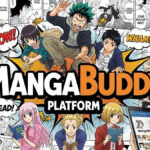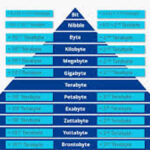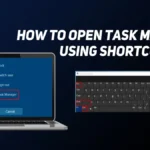Kora Online is a term that has gained momentum in recent years, bridging the gap between heritage and modern connectivity. At its core, it refers to the blending of the kora—an ancient 21-stringed West African instrument celebrated for its hypnotic melodies—with online platforms that make its sound, knowledge, and cultural context accessible worldwide. The searcher’s intent here is often straightforward: people want to know what Kora Online means, how it works, and why it matters in today’s interconnected world. Whether one is an enthusiast of world music, a researcher of cultural traditions, or someone curious about how technology redefines heritage, understanding Kora Online opens an essential doorway. It is more than just music shared on the internet; it is an evolving dialogue between past and present, weaving cultural threads into the fabric of a digital age. In this article, we will explore the history of the kora, its adaptation into online platforms, the cultural significance of this digital transition, its educational uses, benefits for creators and audiences, and the future it envisions in a rapidly changing landscape. By the end, the concept of Kora Online will not only be clear but deeply resonant with the way tradition and technology can coexist.
The Origins of the Kora
The kora is a harp-lute originating from West Africa, especially among the Mandinka people. With 21 strings crafted from fishing line or gut, attached to a resonating calabash gourd covered in cowhide, the instrument produces sounds that are ethereal yet rhythmic. Traditionally, it was played by griots—storytellers and keepers of history who passed down genealogies, myths, and cultural values orally. This heritage was not merely entertainment but an archive of identity. The evolution from village gatherings to concert halls brought the kora into international awareness. Yet, the instrument’s mystical presence often remained tied to its locality, creating a challenge for broader global exposure. The emergence of Kora Online changes that dynamic. Through streaming, digital lessons, and archival recordings, the instrument transcends borders. In many ways, Kora Online preserves oral traditions once limited to griot families while inviting new listeners into a cultural conversation. Its online presence doesn’t dilute tradition but amplifies it to audiences that might never step into West Africa.
Defining Kora Online
Kora Online refers to the networked availability of kora music, resources, and knowledge through digital media. This can take the form of live concerts streamed on platforms like YouTube, tutorials offered by griots over video calls, or archival collections digitized for global study. It may also refer to the broader movement of keeping the cultural practice alive via internet platforms. Unlike casual uploads of music, Kora Online is intentional in framing the instrument not just as a musical object but as a cultural ecosystem. For learners, it provides structured access to playing techniques once only taught face-to-face. For cultural historians, it offers rare recordings and oral narratives digitized for posterity. For general audiences, it allows moments of immersion in a sound world previously inaccessible. The significance of Kora Online lies in its ability to merge an ancient cultural tradition with cutting-edge tools, reshaping how we think about preservation, education, and art.
How Technology Shapes Kora Online
The story of Kora Online cannot be told without technology. From high-quality microphones capturing the delicate tonalities of strings to platforms that compress and stream across continents, digital tools allow the instrument to live anew. The online ecosystem includes video tutorials, digital sheet music, interactive platforms where learners can adjust playback speed, and forums that connect enthusiasts across continents. What once required an apprenticeship with a griot can now begin with a video call or downloadable lesson pack. This democratization of access reshapes cultural ownership. Instead of remaining confined to West Africa, the kora’s techniques become available in Paris, Tokyo, or São Paulo. However, this democratization also raises questions of authenticity and representation. Who owns the narrative of kora when it moves online? How do communities ensure respect for its cultural roots while welcoming global audiences? Technology, in this sense, is not neutral—it is a powerful mediator in the Kora Online story.
The Cultural Significance of Kora Online
Culturally, Kora Online does more than spread music. It preserves intangible heritage that might otherwise fade in the face of globalization. Oral traditions that accompanied the instrument—genealogies, proverbs, and tales—are often recorded and shared digitally alongside the music itself. This creates a layered archive of knowledge where sound and story intertwine. For the Mandinka people and broader West African societies, seeing the kora represented online is also an affirmation of cultural pride. It demonstrates that local heritage can adapt and thrive in globalized spaces. As one griot once remarked, “The kora speaks the language of memory, and online it becomes memory without borders.” For diaspora communities scattered across continents, Kora Online offers a link to roots. It provides not only music but a cultural anchor that sustains identity across distances. In this sense, Kora Online functions as both cultural preservation and cultural diplomacy.
Benefits of Kora Online
The rise of Kora Online brings tangible benefits across multiple domains. For learners, it breaks down geographical barriers, offering access to instruction previously limited to select communities. For performers, it creates global visibility, expanding audiences and generating income through live streams and digital downloads. For cultural institutions, it provides an archival tool, safeguarding recordings against physical deterioration. For enthusiasts, it offers an opportunity to experience a unique tradition from the comfort of their homes. Beyond these practical benefits, Kora Online embodies a symbolic value: it demonstrates how tradition can evolve without losing authenticity. This adaptability is increasingly vital in a world where cultures face pressures of homogenization. Instead of erasure, the kora adapts, asserting its presence in modern contexts. The result is an enriching exchange where ancient melodies converse with digital listeners. In doing so, Kora Online exemplifies how cultural resilience thrives through adaptation.
Table 1: Key Aspects of Kora Online
| Aspect | Description |
|---|---|
| Definition | Digital presence of kora music, teachings, and culture through online platforms. |
| Primary Purpose | Preservation, education, global accessibility, and cultural representation. |
| Tools Used | Streaming platforms, video tutorials, digital archives, interactive software. |
| Cultural Value | Connects traditions with diaspora, promotes identity, and affirms heritage. |
| Global Impact | Expands awareness of the kora beyond West Africa to international audiences. |
Educational Opportunities Through Kora Online
One of the most transformative aspects of Kora Online is its role in education. Traditionally, learning the kora required years of apprenticeship under a master griot, often within family lineages. Today, while those traditional paths remain vital, online platforms offer supplemental routes. Digital tutorials, notations adapted for Western musical understanding, and even virtual masterclasses create hybrid learning experiences. This accessibility encourages cross-cultural learning, where musicians from various genres—jazz, classical, electronic—incorporate kora elements into their craft. Universities and conservatories are also beginning to integrate Kora Onlines resources into world music curricula. In doing so, they provide students a bridge between ethnomusicology and lived tradition. For young learners in Africa itself, onlines platforms also offer peer-to-peer sharing, ensuring the kora remains vibrant among future generations. As one educator notes, “The internet has made the griot’s circle larger; now it is global, but the circle remains intact.”
Kora Online and Global Music Fusion
Kora Online is not only about tradition—it is also about transformation. The digital availability of kora music has facilitated collaborations across genres. From fusions with electronic beats to improvisations alongside jazz quartets, the kora’s delicate resonance finds new life in unexpected spaces. Online platforms often serve as the meeting ground for these collaborations, where musicians connect, exchange files, and produce global soundscapes. Such fusions illustrate the adaptability of the kora’s voice. They also embody a broader message: cultural traditions need not be static relics but can evolve dynamically. For audiences, this fusion offers freshness while retaining authenticity. For creators, it opens a horizon of possibilities. The hybridity born from Kora Onlines collaborations underscores the instrument’s relevance in global contemporary culture. It shows that while rooted in tradition, the kora is never confined by it.
Table 2: Advantages and Challenges of Kora Online
| Category | Advantages | Challenges |
|---|---|---|
| Education | Wider access, structured lessons, hybrid models of learning. | Risk of superficial learning without cultural depth. |
| Preservation | Digital archives safeguard oral traditions and recordings. | Authenticity concerns and ownership disputes. |
| Performance | Global visibility, income opportunities, diverse collaborations. | Over-commercialization or loss of context. |
| Cultural Identity | Strengthens diaspora connections, affirms heritage pride. | Potential dilution of traditional values. |
| Innovation | Encourages musical fusion and experimentation. | Balancing innovation with respect for origins. |
The Role of Diaspora Communities in Kora Online
Diaspora communities play a pivotal role in the growth of Kora Online. Living across Europe, North America, and Asia, members of the West African diaspora often become cultural ambassadors. They organize concerts, record lessons, and build digital archives that spotlight the instrument. Through these efforts, Kora Onlines does not remain a passive experience but a proactive cultural assertion. Diaspora musicians often blend traditional kora techniques with their new cultural surroundings, creating hybrid identities expressed through sound. Online platforms amplify these voices, allowing diaspora stories to resonate widely. For many, Kora Onlines becomes a way to reconcile dual identities: rooted in heritage but open to global participation. This duality reflects a broader human experience in the digital age, where belonging often transcends geography. As one performer explained, “When I play the kora onlines, I am at home everywhere and nowhere. The strings bridge my worlds.”
Future of Kora Online
Looking forward, Kora Onlines promises even greater expansion. Virtual reality could allow immersive concerts where audiences feel seated in a griot’s courtyard. Artificial intelligence could assist learners by giving real-time feedback on fingering or tuning. Blockchain technologies might protect ownership rights for griots, ensuring fair compensation for digital use of their heritage. At the same time, challenges remain: ensuring authenticity, respecting cultural ownership, and balancing innovation with tradition. The future will likely be shaped by collaboration between griot communities, technologists, educators, and audiences. If handled thoughtfully, Kora Onlines could become a model for how cultural traditions worldwide adapt to the digital sphere. Its resilience suggests that rather than fading, traditions like the kora will thrive in digital futures. As the Mandinka proverb says, “The tree with deep roots laughs at the wind.” Kora Online may well be that rooted tree in the storm of modernity.
Conclusion
Kora Onlines embodies a dialogue between heritage and innovation. It takes one of West Africa’s most treasured instruments and amplifies it into the global soundscape. By blending ancient traditions with modern technology, it addresses the searcher’s curiosity about what the concept means, why it matters, and how it functions in practice. From its role in education and preservation to its capacity for cultural diplomacy and innovation, Kora Onlines demonstrates the resilience of cultural traditions in the digital age. It also highlights the need for thoughtful engagement—balancing access with respect, innovation with authenticity, and global sharing with local ownership. Ultimately, Kora Online’s more than a keyword or concept; it is a testament to how human creativity adapts across centuries. It reflects our capacity to honor the past while embracing the future. And in doing so, it ensures that the kora’s voice—melodic, haunting, timeless—will continue to speak in ways that matter to generations yet to come.
FAQs
Q1: What does Kora Online mean?
Kora Online refers to the digital presence of the West African koras instrument through streaming, tutorials, and cultural archives, making the instrument and its traditions globally accessible.
Q2: Can I learn to play the kora online without a teacher in person?
Yes, many platforms provide structured lessons, video tutorials, and live classes. However, guidance from experienced players ensures cultural depth.
Q3: How does Kora Online help preserve cultural traditions?
It digitizes oral histories, performances, and teachings, safeguarding them from loss while providing global exposure to West African heritage.
Q4: Is Kora Online only for musicians?
Not at all. While learners benefit greatly, it also serves historians, educators, diaspora communities, and casual listeners seeking cultural enrichment.
Q5: What challenges does Kora Online face today?
The main challenges include authenticity concerns, cultural ownership disputes, and balancing innovation with respect for traditional values.











